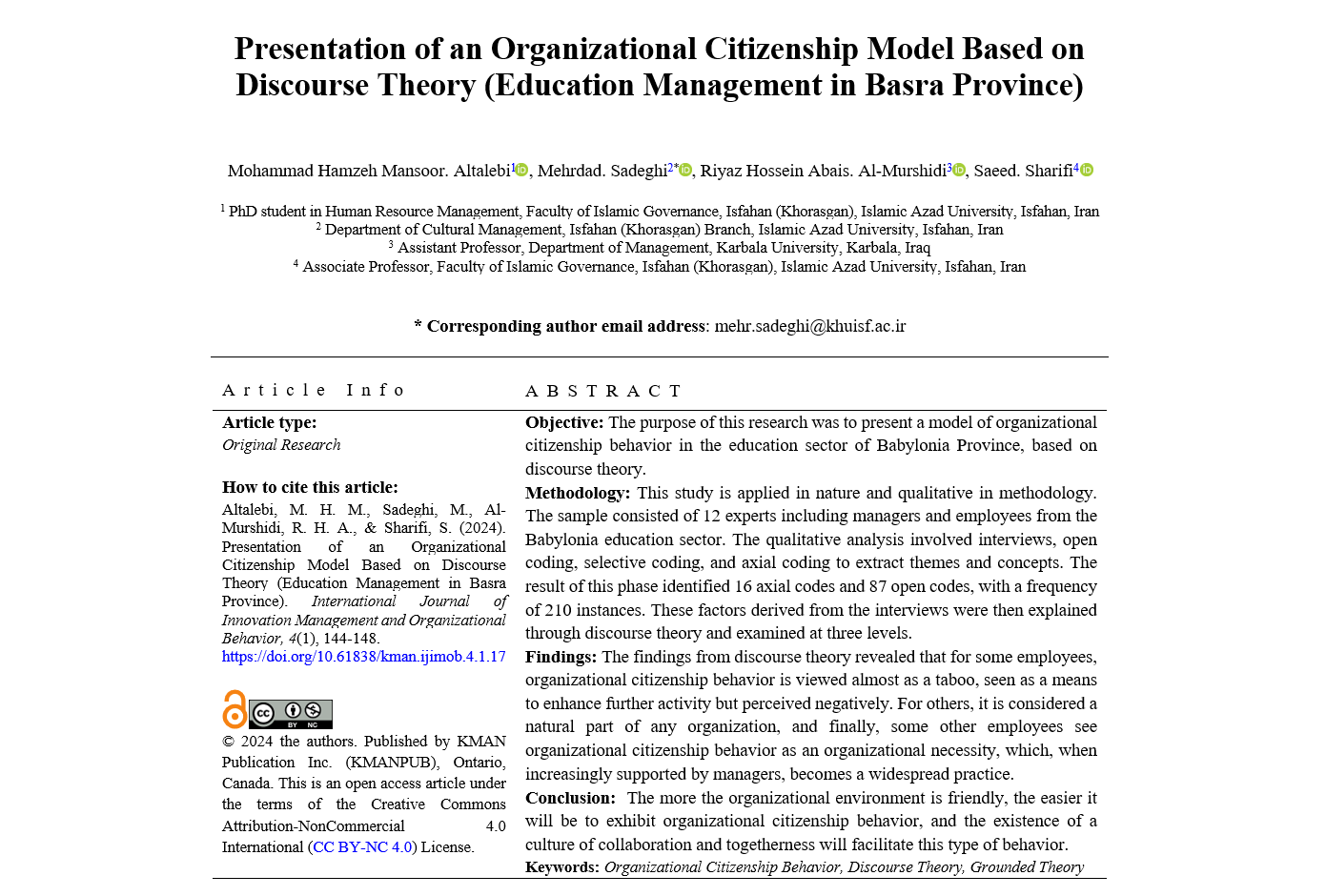Presentation of an Organizational Citizenship Model Based on Discourse Theory (Education Management in Basra Province)
Keywords:
Organizational Citizenship Behavior, Discourse Theory, Grounded TheoryAbstract
Objective: The purpose of this research was to present a model of organizational citizenship behavior in the education sector of Babylonia Province, based on discourse theory.
Methodology: This study is applied in nature and qualitative in methodology. The sample consisted of 12 experts including managers and employees from the Babylonia education sector. The qualitative analysis involved interviews, open coding, selective coding, and axial coding to extract themes and concepts. The result of this phase identified 16 axial codes and 87 open codes, with a frequency of 210 instances. These factors derived from the interviews were then explained through discourse theory and examined at three levels.
Findings: The findings from discourse theory revealed that for some employees, organizational citizenship behavior is viewed almost as a taboo, seen as a means to enhance further activity but perceived negatively. For others, it is considered a natural part of any organization, and finally, some other employees see organizational citizenship behavior as an organizational necessity, which, when increasingly supported by managers, becomes a widespread practice.
Conclusion: The more the organizational environment is friendly, the easier it will be to exhibit organizational citizenship behavior, and the existence of a culture of collaboration and togetherness will facilitate this type of behavior.
Downloads

Downloads
Additional Files
Published
Issue
Section
License
Copyright (c) 2024 Mohammed Hamzeh Mansoor Altalebi (Author); Mehrdad Sadeghi (Corresponding Author); Riyaz Hossein Abais Al-Murshidi , Saeed Sharifi (Author)

This work is licensed under a Creative Commons Attribution-NonCommercial 4.0 International License.















